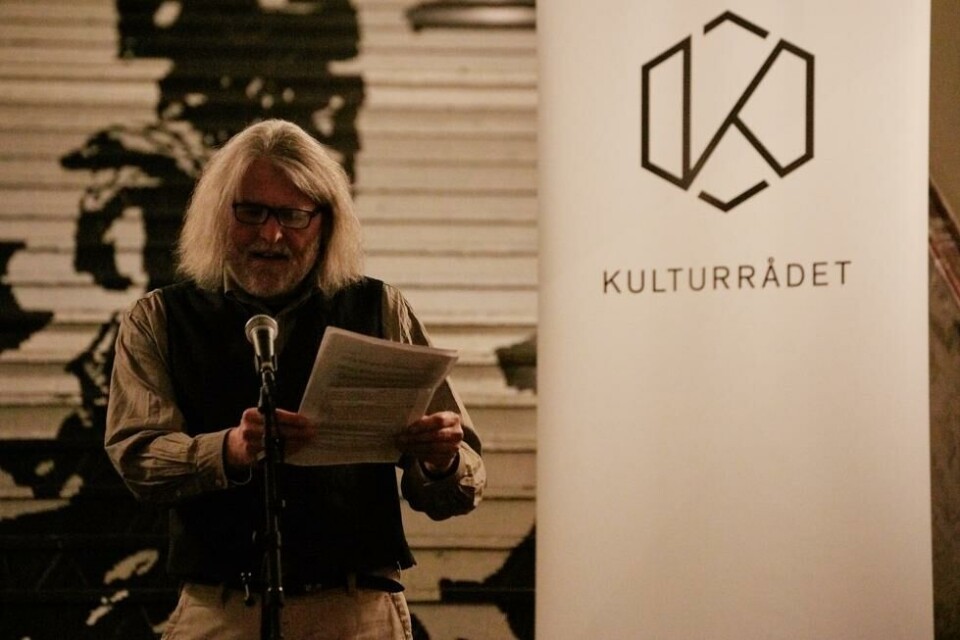
Laudation for Therese Bjørneboe
Laudation for Therese Bjørneboe and Norsk Shakespeare Tidsskrift, Oslo, 11 Dec 2019. By Thomas Irmer
Ladies and Gentlemen, dear members of the Culture Council, dear Therese:
Common knowledge has it that Hamlet is Shakespeare’s most popular tragedy in Germany, with various interpretations and even comprehensive philosophies around the play. That is, by the way, different from other countries. King Lear, with his empire falling apart, for instance, holds this privileged position of the most significant Shakespeare tragedy in Great Britain (we once more realize why so), and Macbeth has always been a mirror to wherever the time was out of joint for reasons of power struggle. When Therese founded Shakespeare more than 20 years ago, it appeared to me that Shakespeare as the name for a theatre journal was courageously ambitious, while perhaps not exactly addressing the very new trends of contemporary theatre.
For the preparation of founding Shakespeare in 1998, Therese looked also in the making of the German theatre journals, Theater heute and Theater der Zeit of which I was the editor-in-chief back then. Her interest was not just how reviewing was organized after certain criteria but how the whole of such an enterprise would pursue the discussion of theatre culture for its meaning in society. How theatre speaks about the problems in society and how this is mediated and accompanied by a journal for professionals and all kinds of interested readers alike. And for the professionals, of course, actors, directors, stage designers, then also composers and musicians in theatre, or video artist, how their work is analyzed and reflected as art. This is how we met and started collaboration for so many years now. Then I found out that Shakespeare, with Hamlet, was a very international project from the beginning, as the Norwegian Fortinbras, when he passes through Denmark to conquer some patch of land in Poland, must also transit Germany before he comes back to Helsingör and eventually returns to his land of fjords, mountains and the sea, and yes to his land of Ibsen and Fosse. I thought this is a great blueprint for the survey of international theatre, and I was very happy about to be part of this Shakespeare og teatertidsskrift.
Here I need to give up further comparisons for the awarded work to deal with, as Therese was of course no Fortinbras and I couldn’t make it to anybody near to a German Hamlet, nor to somebody the Norway defeats in Poland – of which we know nothing anyway. Yet this touches upon how communication about theatre is also a matter of communication between theatre cultures. In that Therese became my best and very demanding teacher of communicating between theatre cultures and also writing about it, both about Norwegian artists working in Germany as well as the careers of German directors like Frank Castorf, Heiner Goebbels and Christoph Marthaler, and new or little known German authors of interest in Norway, or about outstanding productions of Ibsen and Fosse in the last 20 years. Or of many others.
Let me give you an example. In a cold winter night in 2004 Therese sent me to a one-night-only show at Berlin’s Maxim Gorki Theater. It was called Requiem, staged in the small studio, a sort of pantomime family drama with figures in a totally strange atmosphere of masquerade and mutilated music. I couldn’t figure out what it was but tried to describe what I had seen. I had no clue about it, and there was no information in the way of a program leaflet that would be given out even in the smallest off-off-productions in Germany to inform about the cast and the team of stage production. The masquerade and music nightmare Requiem, with some uncanny references to Christmas, as it was the time of the performance, made a deep impact on me. What’s that for a review? I wrote a long piece about my frankly disoriented impressions, also in the context of current theatre in Berlin. It was for Shakespeare in Norway, so I thought Therese might figure out this strange little Fortinbras of sorts whose order of first and second name I failed to bring in the right order: Who is Vinge Vegard? Who is Vinge Vegard? Who is Vinge Vegard? The answer did not come soon but then with a strong advent at Berlin’s Volksbühne. For the first show, a kind of 360-hour durational performance of The Wild Duck at the Prater we went together to see it for a while at midnight or even later, not only once but several times, with several times of reflections in print about the phenomenal BORKMAN afterwards.
Another example to be named here, as his Nobel lecture ended with an episode in Oslo five years back, is of course Peter Handke and everything that Therese organized to be written and debated about him and his work. That’s what an editor should do, that’s what makes an editor great. And that’s exactly what makes the editor of a theatre journal important for the whole theatre community and way beyond.
Congratulations, Therese! And many more years to come with SHAKESPEARE!!
Thank you, Tusentakk, Dankeschön!!